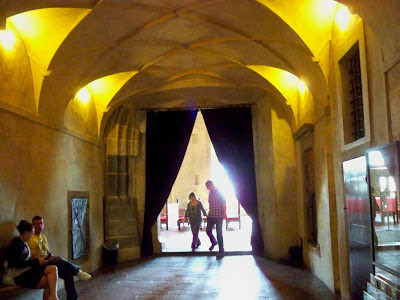On Faith and Coincidence
I just realized (in my typically math-challenged way) that yesterday, the first day of 2014, was also my 1, 200th post. A pleasing synchronicity between calendar and art — even more enjoyable because I was unaware of it until today.
I like to think that there is order in the universe, that such coincidences don’t happen randomly. What purpose could there be in this one? Only this: that any coincidence heightens my belief that there is meaning in creation.
Which leads me to ponder passages from Marilynne Robinson’s essay “Freedom of Thought.”
For almost as long as there has been science in the West, there has been
a significant strain in scientific thought which assumed that the
physical and material preclude the spiritual. The assumption persists
among us still, vigorous as ever, that if a thing can be “explained,”
associated with a physical process, it has been excluded from the
category of the spiritual. …
If the old, untenable dualism is put aside, we are instructed in the
endless brilliance of creation. Surely to do this is a privilege of
modern life for which we should all be grateful.
Being grateful for the “endless brilliance of creation” — and believing that it is a creation — these are thoughts I take with me into the new year. That they were triggered by a “random” coincidence, so much the better.








